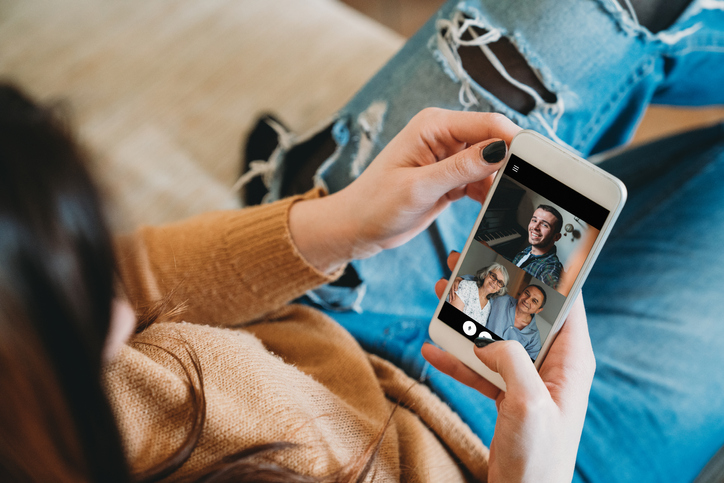Australian not-for-profit organisation, R U OK?, is calling on Australians to include staying connected in their daily routine as they deal with the lasting impact of the Coronavirus.
R U OK? CEO, Katherine Newton, says “the virus has affected everyone in some way and we all need to actively seek ways to connect, and in some cases reconnect, with those in our world who might be struggling”.
“The pandemic has inspired some wonderful examples of how caring our community can be, and we need to hold on to that because that sense of genuine care and concern can be life changing for those grappling with the impact of recent events.
“Some people find change pretty scary,” Ms Newton says. “Many might be feeling disconnected from day-to-day life, have new financial and employment pressures, added family stressors, be physically unwell, or experiencing heightened levels of anxiety.
“Everyone deals differently with increasing and sometimes unrelenting pressure. While I might be coping well, some of those around me might not be,” she says. “Life might not be the same as it was before and we might need to live with some ongoing restrictions and physically distancing.
“But there is always something we can do and that is look out for each other.
“We want to bring everyone through and social connection is critical in ensuring we do. We want those who are well and able to make it part of their daily routine.
“In the morning think about who in your world might be struggling and make a plan to reach out to them and ask ‘Are you okay?’.
“That simple question and a conversation has the power to change someone’s life for the better.”
#StayConnected
R U OK? offers three tips to #StayConnected:
• Create a list: Think about who in your world, personal or professional, near or far, might be struggling.
• Dedicate the time: Make ‘time to ask’ as part of your daily routine.
• Choose your channel: Communicate in way that works for you both: make a phone call, send an SMS, video call, email or, if you can meet in person, you might want to chat over the fence, go for a walk together or catch up for a cuppa.
According to Ms Newton, COVID-19 has forced us on a journey with three distinct phases from the initial anxiety and fear, through to exhaustion, and on to hope and acceptance.
Rachel Clements, Director of Psychological Services, Centre for Corporate Health, is an R U OK? Ambassador and says staying connected can help us transition through the phases.
“If you notice a change in someone, don’t brush it aside or avoid the conversation because you aren’t sure what to say. Reaching out early can stop small things from becoming bigger issues,” says Ms Clements.
“Ask ‘are you okay’, and look after each other. There is another period of transition still to come as we adjust back to ‘normal’ life. It might be of lower intensity, but we might again have to navigate anxiety, languish and exhaustion.
“It’s important we all do what we can to support our friends, family and colleagues to manage the ups and downs that life is throwing at us,” she says.
Ms Newton says “we accept there are things people can’t do but let’s focus on what we can do. We can make every day the day to ask ‘Are you okay?’. We can be a listening ear and a (virtual) shoulder to lean on. Let’s make time to look out for one another, be kind and #StayConnected.”
If you need guidance on how to support someone, visit ruok.org.au
If you need support or know someone who does, visit ruok.org.au/findhelp for professional support services and self-care tools.



